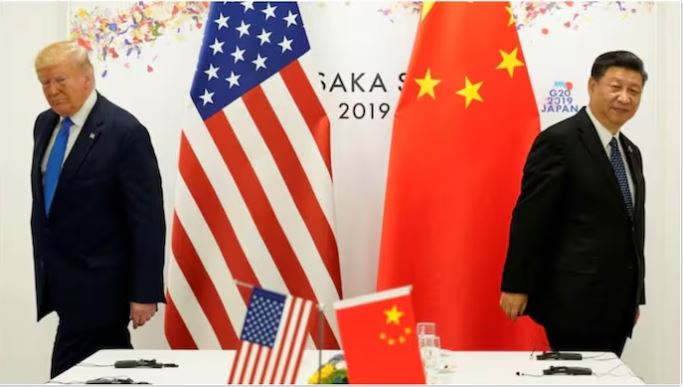New Delhi: On Wednesday, U.S. President Donald Trump declared a 90-day suspension of his reciprocal tariff, merely a day after its implementation. This announcement raised alarms about a potential trade war, led to a significant downturn in global markets, and heightened fears of an impending global recession. Nevertheless, he simultaneously revealed an immediate increase in tariffs on China to 125 percent, up from the previously set 104 percent.
“I initiated a 90-day pause for those who did not retaliate, as I warned that retaliation would result in a doubling of tariffs,” Trump stated while announcing the substantial 125 percent tariffs on China.
In response, China, under the leadership of Xi Jinping, remained resolute and countered Trump’s 104 percent tariffs with its own additional tariffs of 84 percent, an increase from the earlier 34 percent, on all American products. China pledged to “fight to the end.”
Following Trump’s latest announcement, the White House communicated on X, “Do not retaliate, and you will be rewarded.”

WHAT MOTIVATED THE TARIFF PAUSE?
The U.S. President noted that over 75 countries had refrained from retaliating against the United States, prompting him to authorize a 90-day pause on the reciprocal tariff. This measure was introduced to address the perceived trade imbalance with the U.S.
“…considering that more than 75 countries have reached out to U.S. representatives to negotiate solutions regarding Trade, Trade Barriers, Tariffs, Currency Manipulation, and Non-Monetary Tariffs, and that these countries have not retaliated in any form at my strong suggestion, I have authorized a 90-day PAUSE,” he posted on TruthSocial.
He stated that during this 90-day timeframe, a notably lower reciprocal tariff of only 10 percent would be implemented.
In justifying his decision to suspend tariffs, Trump characterized it as a demonstration of his adaptability.
“You must possess flexibility. I could assert, ‘Here is a wall, and I will breach it. I will proceed regardless. Continue forward, and you cannot penetrate the wall.’ At times, it is necessary to navigate beneath, around, or above the wall,” he remarked.
TRUMP CRITICIZES CHINA ONCE MORE
Nevertheless, Trump declared a significant increase in tariffs on China, raising them to 125 percent from the previous 104 percent—a decision that had already provoked a response from Beijing.
“Due to the disrespect that China has exhibited towards the global markets, I am officially increasing the tariff imposed on China by the United States to 125%, effective immediately. At some point, I hope in the near future, China will understand that the era of exploiting the USA and other nations is no longer viable or acceptable,” the President of the United States stated.
Following this announcement, major indexes on Wall Street experienced a surge, although the specific details regarding Trump’s intentions to reduce tariffs on non-China trading partners were not immediately available. The S&P 500 stock index increased by nearly 7 percent after the announcement.
Donald Trump’s ‘reciprocal’ tariffs on the United States’ trading partners took effect on Wednesday, which included substantial duties on Chinese products, intensifying a global trade conflict. In a swift reaction, China imposed an 84 percent tariff on American goods that same day and pledged to continue the tariff battle until the end.




